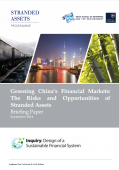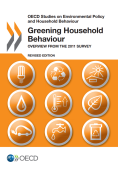Building on the case study of the shea butter supply chain in Burkina Faso, this article proposes an original approach consisting of improved energy use for a more competitive and sustainable activity. The traditional butter production process consumes a great deal of energy from firewood and generates a lot of organic waste that could be used as an energy source. We examined the feasibility of using alternative energy techniques that could be taken on board as they are simple and designed from local resources, whilst using by-products from the shea butter production chain as biofuels to partially replace firewood. The study shows that using alternative energy techniques, taken one by one or combined, can lead to lower energy use and thereby increase women's incomes, whilst helping to conserve forests.


Renewable energy together with energy efficiency, sustainable transport, sustainable agriculture, sustainable tourism, green building and waste management are economic sectors which are often considered capable of paving the way for a transition to a green economy and providing win-win solutions offering job creation, poverty alleviation and environmental protection. However, there are a number of obstacles and challenges that might inhibit these sectors in their contribution towards greening the economy. These include limited knowledge and awareness relevant to green economy and green jobs, gaps in policy and regulations, limited financial incentives to support green initiatives, and related awareness and skill shortages.
This publication suggests solutions that can be built into the design of urban development projects undertaken by the Asian Development Bank (ADB) to address the common problems and grievances of the urban poor, and to improve urban governance overall.
It also identifies successful or promising community-based approaches to dispute resolution that can be useful in urban project design.
It uses ADB's Governance policy as a framework for analyzing key findings of Access to Justice for the Urban Poor, a regional technical assistance grant to four developing member countries in Asia and the Pacific - Bangladesh, Indonesia, the Philippines, and Thailand. The findings consist of case studies illustrating typical problems encountered by the poor in connection with access to urban assets and services, and identifies the types of grievances or disputes that may arise because of these issues. The publication reproduces key case studies to illustrate significant concepts.

Developing growth strategies that promote greener lifestyles requires a good understanding of what factors affect people’s behaviour towards the environment. Recent OECD work based on periodic surveys of more than 10, 000 households across a number of countries and areas represents a breakthrough by providing a common framework to collect unique empirical evidence for better policy design.
This publication presents responses from the most recent round of the OECD survey implemented in 2011 in 5 areas (energy, food, transport, waste and water) and 11 countries: Australia, Canada, Chile, France, Israel, Japan, Korea, the Netherlands, Spain, Sweden and Switzerland.
Analysis comparing the data across countries, policy conditions and households’ characteristics reveals which measures most effectively change behaviour. Each round of the survey also allows to track changes over time and to explore new emerging issues.
